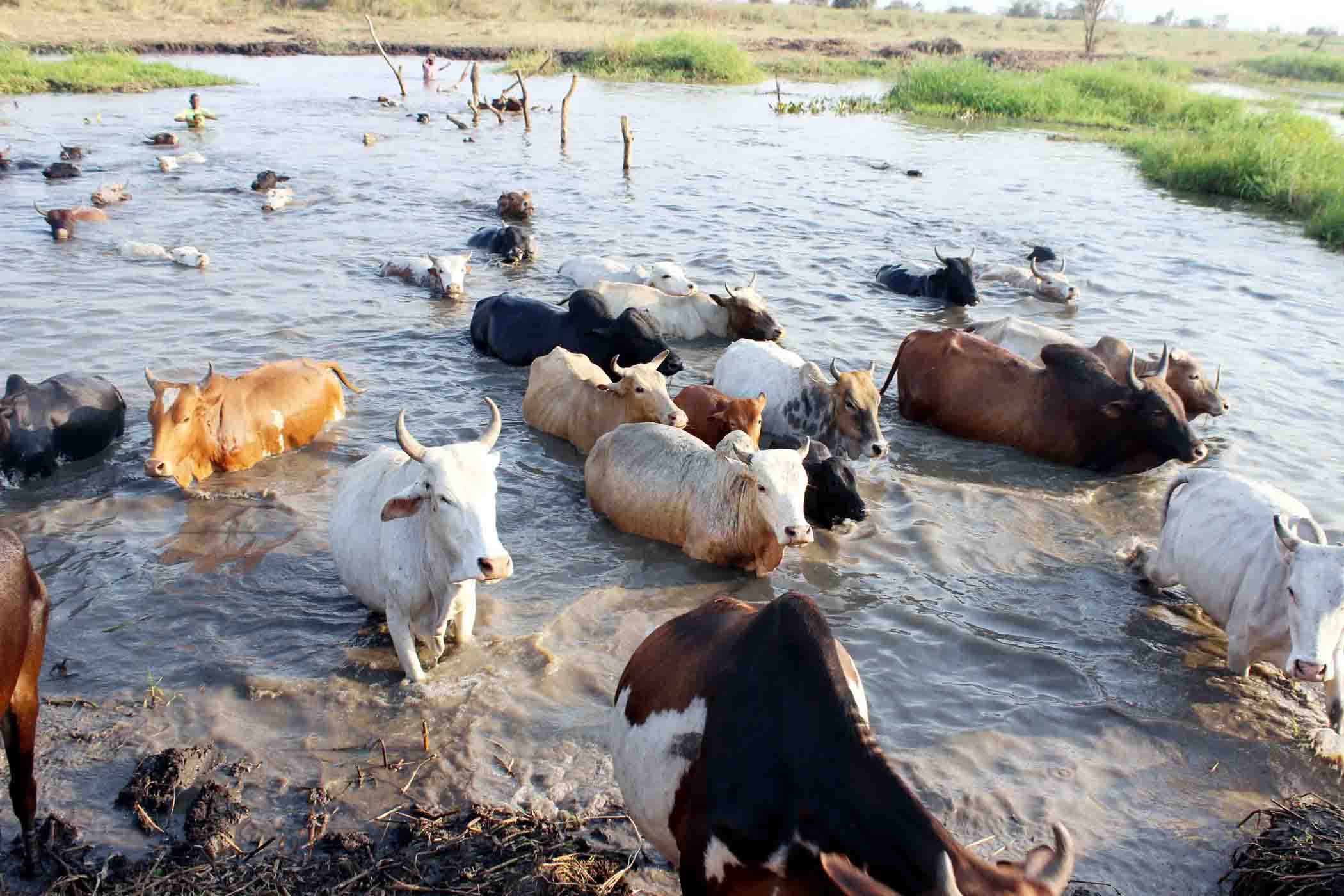SOROTI– The Ministry of Water and Environment with support from the World Bank has started a two-year project codenamed “Integrated Water Management and Development Project”, aimed at restoring wetlands in Sezibwa River and Akweng River catchment areas in Kyoga Water Management Zone.
River Sezibwa, which is approximately 175 km long, is located in the southern central part of Uganda covering the districts of Buikwe, Kayunga, and Mukono.
While Akweng covers the eight districts of Serere, Kalaki, Kaberamaido, Amuria, Kapelebyong Alebtong, Dokolo, and Soroti.
The two water catchment areas are said to have lost more than 70 percent of the wetlands due to human activities such as farming.
While addressing the stakeholders in a meeting on Thursday at Soroti City during the inception workshop, Eng. Maximo B. Twinomuhangi, the team leader Kyoga Water Management Zone said US$7.75 million [about Shs 29 billion] would be spent on the project.
The project officials met with district leaders, media, and civil society in Teso Sub-region to agree on the modalities of implementing the project in the region.
The project, according to Eng. Twinomuhangi, aims at increasing the resilience of the surrounding communities to the risk of floods and landslides by promoting catchment-based integrated, equitable, and sustainable management of water and related resources.
“All these areas that we are targeting are prone to floods. People have depleted wetlands and the effects are visible,” Twinomuhangi said.
He explained that locals in the area are at a high risk of losing all the water resources as well as facing desertification if people continue to encroach on the swamps.
However, district leaders and other stakeholders in attendance expressed concern that the project has an up-bottom approach, which may affect the implementation of its activities.
Stephen Olebe, the Soroti district speaker, said while ministries come up with well-written projects, they end up not being implemented well because they lack local content.
He said locals should be involved in all the processes.
“We want a project that shall have impact, many projects the ministries bring to us are designed and executed from the centre, therefore, lacking local content, the reason they at times fail,” Olebe said.
Dan Akutu, who works with Soroti Catholic Diocese Integrated Development Organization [SOCADIDO], a development arm of the Soroti Catholic Diocese, emphasized the need for different ministries to get the local people fully involved in the initial stages of project planning if they are to support it for positive results.
There is need to engage local people because they are the ones affected by climate change in the end,” Akudo said.
Stephen Ochola, the LCV chairperson Serere district who also doubles as the chairperson of LCV chairpersons Association in Teso Sub-region, one of the areas facing a severe food shortage, appealed to the government to curb environment degradation.
He said that without government intervention on environmental issues, individuals will keep degrading wetlands leading to drought, food shortage, and other adverse effects.
He blamed government which he said wields a lot of power under the National Environment Management Act but has failed to exercise it.
The Act under section 36 states: “No person shall reclaim or drain any wetland, erect, construct, place, alter, extend, remove or demolish any structure that is fixed in, on, under or over any wetland.
It also states: “No person is allowed to disturb any wetland by drilling or tunneling in a manner that has or is likely to have an adverse effect on the wetland; deposit in, on or under any wetland any substance in a manner that has or is likely to have an adverse effect on the wetland.”
Ochola was perturbed that despite having laws in place to protect the wetlands, this has not been realised.
However, Dr. Callis Tindimugaya, the Commissioner water Resources, Planning and Regulation in the Water and Environment Ministry who represented the Permanent Secretary, blamed the lack of enforcement on insufficient funding to the agencies mandated to do the work.
He added that political interference also contributed to the current state of environmental degradation in the country.
Dr. Tindimugaya further asked the leaders in the water catchment areas to embrace any project that comes to address climate change because it is negatively affecting their livelihood.
Buy your copy of theCooperator magazine from one of our countrywide vending points or an e-copy on emag.thecooperator.news
